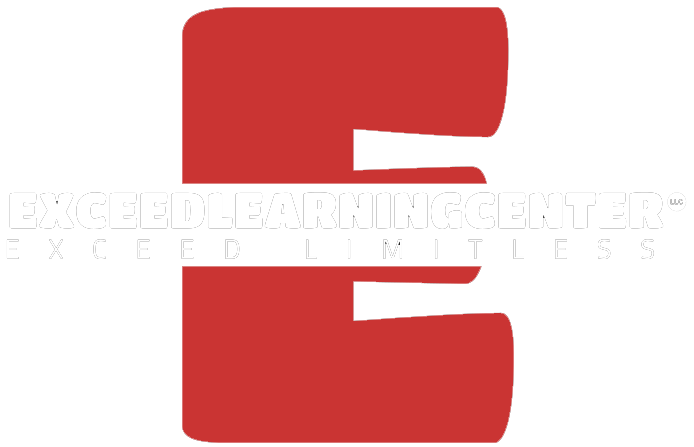Unlocking Academic Success with Effective Study Habits
Introduction
Welcome to our presentation on Effective Study Habits.
In this workshop, we will delve into the world of effective study habits and explore the techniques and strategies that can empower you to excel academically.
Importance of Effective Study Habits in Academic Success
Effective study habits play a pivotal role in achieving academic success. They provide a structured framework for learning and retaining knowledge, leading to better grades and overall educational accomplishments.
The Foundation of Effective Studying
Effective study habits are the foundation of academic success.
They optimize learning, reduce stress, and empower students to achieve their academic goals.
These habits include time management, goal setting, active learning, minimizing distractions, and utilizing study resources.
Strategy 1: Time Management
Time management is the cornerstone of successful studying.
It plays a pivotal role in academic achievement for several compelling reasons:
Significance of Time Management
Optimizing Learning: Effective time management ensures that you make the most of your study time. By allocating your time strategically, you can absorb information more efficiently and with greater comprehension. This means you spend less time studying while achieving better results.
Reducing Stress: Without proper time management, students often resort to last-minute cramming. This not only undermines the quality of learning but also leads to stress and anxiety. Time management paves the way for structured, stress-free studying.
Resource Allocation: It helps you allocate your most productive hours to studying. This ensures that your peak mental performance coincides with your study sessions, resulting in better retention of information.
Goal Achievement: Time management goes hand-in-hand with goal setting. It enables students to break down larger academic goals into manageable tasks and allocate time to work on each task. This process empowers students to track their progress and achieve their objectives.
Common Time Management Challenges
Students frequently encounter a range of challenges when it comes to managing their time effectively. These challenges can hinder academic success and contribute to stress.
Let's explore some common time management obstacles:
Procrastination: Procrastination is a notorious time thief. Many students struggle with the tendency to delay important tasks until the last moment. This not only reduces the quality of work but also adds unnecessary stress.
Example: Waiting until the night before an exam to study for an entire semester's worth of material.
Distractions: In our digital age, distractions are aplenty. Social media, smartphones, and even the environment around us can divert our attention from studying.
Example: Constantly checking notifications on your phone instead of focusing on your textbook.
Overcommitment: Balancing academics with extracurricular activities, work, and personal life can be challenging. Overcommitment can lead to a lack of time for concentrated, effective studying.
Example: Juggling a part-time job, multiple clubs, and a full course load, leaving little time for focused study.
Lack of Prioritization: Not knowing which tasks to prioritize can lead to disorganized time management. Without proper prioritization, you may spend excessive time on less important tasks.
Example: Spending hours perfecting the formatting of notes instead of understanding the core concepts.
Strategy 2: Time-Blocking
Time-blocking is a powerful time management technique that can revolutionize the way you approach your study routine.
In essence, it involves dividing your day into specific time blocks and dedicating each block to a particular task or activity.
Here's a breakdown of this technique:
- Definition of Time-Blocking: Time-blocking is a structured approach to managing your time. It's like creating a daily or weekly calendar where you allocate specific chunks of time for different activities. This technique helps you stay organized and ensures that you use your time efficiently.
- Scheduling Specific Time Blocks: In the context of effective studying, you allocate dedicated time blocks for your study sessions. These blocks are carefully chosen based on your peak productivity hours and availability. For instance, you might have a 2-hour time block in the morning for focused reading and note-taking, followed by a 1-hour break.
- Visual Representation: Time-blocking often involves creating a visual representation of your daily or weekly schedule. This can be done on a physical planner, a digital calendar, or even a simple spreadsheet. By visually mapping out your time blocks, you gain a clear overview of how you're spending your day.
Tips for Setting Up a Study Schedule
- Set Clear Academic Goals: Start by defining your academic goals. What do you want to achieve in your studies? Knowing your objectives helps you tailor your study schedule to meet those goals. Whether it's acing an exam, completing a project, or mastering a subject, your goals provide direction.
- Prioritize Tasks: Prioritization is essential in time management. Identify the most important tasks and assignments, especially those with impending deadlines. Arrange your schedule so that high-priority items receive dedicated study time.
- Allocate Specific Time Blocks: One of the key advantages of time-blocking is the allocation of specific time blocks for different tasks. For your study schedule, create focused study time blocks when you're most alert and productive. These blocks should be uninterrupted and dedicated solely to studying.
- Use Digital or Physical Planners: To aid in organization, consider using digital or physical planners, calendars, or scheduling apps. These tools allow you to create, edit, and view your study schedule easily. You can also set reminders and notifications to keep you on track.
Strategy 3: Goal Setting and Planning
Setting clear academic goals and creating a structured plan to achieve them is a fundamental aspect of effective time management and successful studying.
The Significance of Setting Clear Academic Goals
Let's explore the significance of this process.
Academic goals provide a sense of purpose and direction in your studies. They serve as motivational targets that drive your learning and help you stay focused.
Clear goals make it easier to measure progress and success. When you know what you want to achieve, it's easier to track your journey toward that achievement.
Strategy 4: Active Learning
Active learning is a dynamic approach to studying that goes beyond passive reading and note-taking. It engages your mind, making study sessions more effective and enjoyable.
Strategies for Making the Most of Your Study Sessions
Active Recall: active recall involves actively stimulating your memory during study. Instead of simply rereading notes, challenge yourself to recall key points from memory. This enhances retention and understanding.
Spaced Repetition: This technique involving the review of material at increasing intervals over time. This strategy is highly effective for long-term retention.
Self-Explanation: Explain concepts in your own words. This deepens understanding and helps identify areas that need further study.
Practice Testing: Highlight the value of practice tests or self-quizzes. They serve as a self-assessment tool and help identify weak areas.
Group Study: Group study is very beneficial to participants. The participants can explain concepts to peers and gain different perspectives.
Active learning transforms study sessions into interactive experiences. These strategies allow you to delve deeper into the material, making it easier to understand and remember.
Reducing Distractions
Effective studying demands a distraction-free environment that allows you to focus and engage with the material.
Common Distractions are social media, smartphone notifications, noise, and multitasking. Recognizing these distractions is the first step in managing them effectively.
Minimizing Distractions
- Silence or put away your phone
- Use website blockers
- Find a quiet space
- Time management
Utilizing Study Resources
Accessing the right study resources is essential for effective learning.
Present a range of study resources, including:
- Textbooks: Discuss the importance of course materials and textbooks.
- Lecture notes: Emphasize the value of your own class notes or those taken from lectures.
- Online resources: Mention the abundance of online materials, including articles, videos, and interactive tutorials.
- Study groups: Highlight the benefits of collaborative learning through study groups.
- Digital tools: Introduce digital resources like note-taking apps, flashcard apps, and academic websites.
How to Select and Maximize Study Materials?
- Evaluate the relevance of each resource to your learning objectives.
- Consider the credibility and source of online materials.
- Prioritize textbooks and lecture notes, ensuring they align with your course content.
- Experiment with digital tools to find what works best for you.
- Utilize study groups as a source of peer-generated study materials and diverse perspectives.
SHARE THIS POST:
Olga Binyaminov
Founder, Exceed Learning Academy
Together, we can exceed expectations and make the journey of learning a truly remarkable one for your child.
Leave A Comment
Search
Send us a Message
Blog - Website Form
Recent Posts
Quick Links









